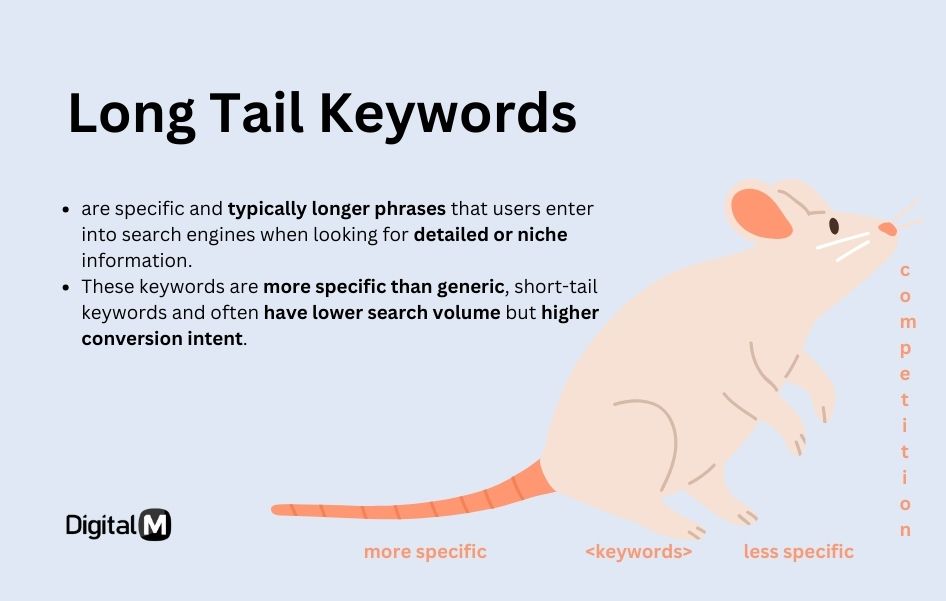Long Tail Keywords
Long tail keywords are specific and typically longer phrases that users enter into search engines when looking for detailed or niche information. These keywords are more specific than generic, short-tail keywords and often have lower search volume but higher conversion intent.
Long tail keywords are like detailed queries people type into search engines when they’re looking for something very specific. While fewer people may search for these terms, they often indicate a clear intention to find specific information.

Key Points:
Specificity: Long tail keywords are more detailed and specific than short-tail keywords. They often consist of several words and provide a clearer context.
Lower Search Volume: Because they are more specific, long tail keywords typically have lower search volumes compared to broader, short-tail keywords.
Higher Conversion Potential: Users searching with long tail keywords often have a more defined intent, making them more likely to convert into customers or take desired actions.
Example:
Short Tail Keyword: “Laptops”
Long Tail Keyword: “Best lightweight laptops for travel under $1000”
In this example, “laptops” is a short tail keyword, while “Best lightweight laptops for travel under $1000” is a long tail keyword that provides more specific information.
Why They Matter:
Targeting Niche Audiences: Long tail keywords help businesses reach a more targeted and niche audience interested in specific products or information.
Reduced Competition: Because long tail keywords are more specific, there’s often less competition for them compared to generic keywords, making it easier to rank for them.
Higher Conversion Rates: Users searching with long tail keywords often have a clearer idea of what they want, leading to higher conversion rates for businesses.
SEO Strategy:
Content Optimization: Create content that naturally incorporates long tail keywords to address specific user queries.
Product Targeting: For e-commerce, optimize product listings with relevant long tail keywords to attract users with specific purchase intentions.
Example Use in Content:
Creating a blog post titled “The Top 10 Lightweight Laptops for Travel Under $1000” and naturally incorporating the long tail keyword throughout the content.
In summary, long tail keywords are specific and detailed phrases users enter into search engines. While they may have lower search volumes, they are valuable for businesses targeting niche audiences, reducing competition, and improving conversion rates.
Also read: SEO Keywords: Keywords vs Longtail Keywords, What is the difference?

